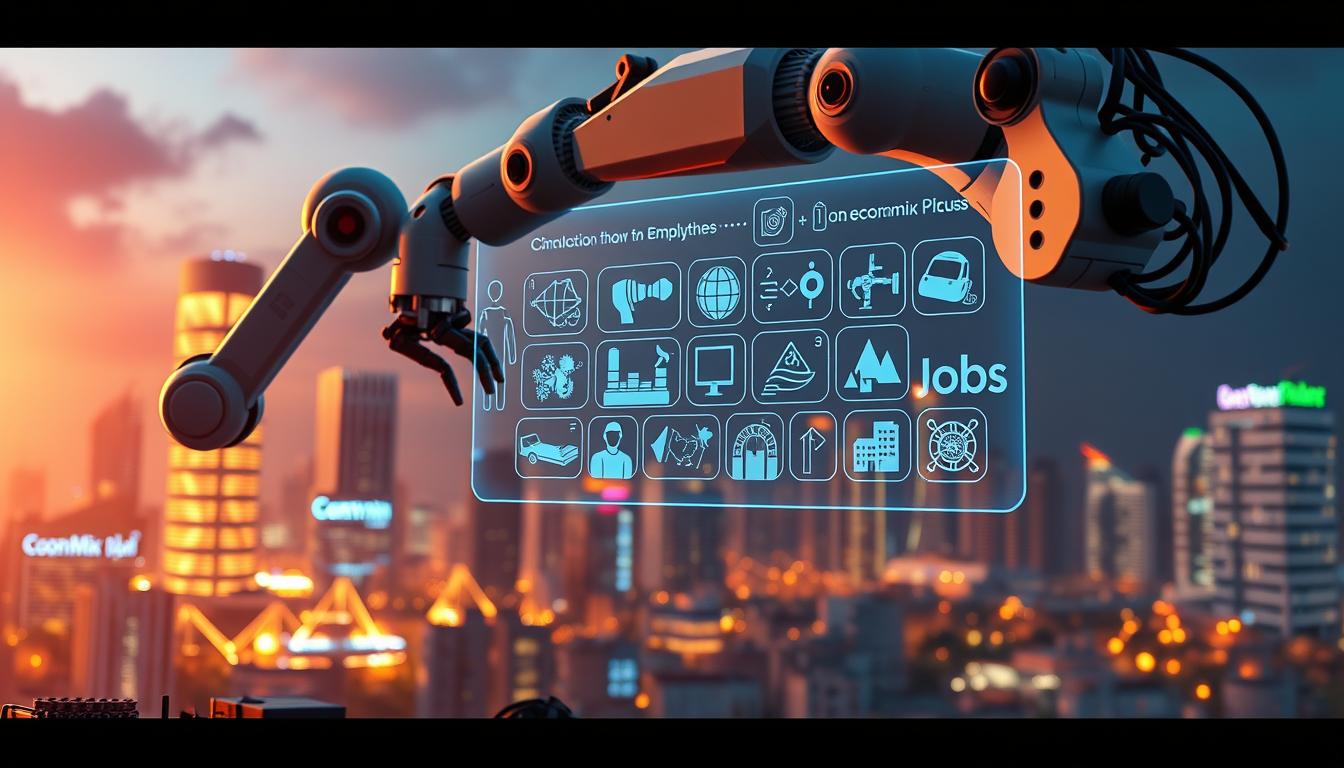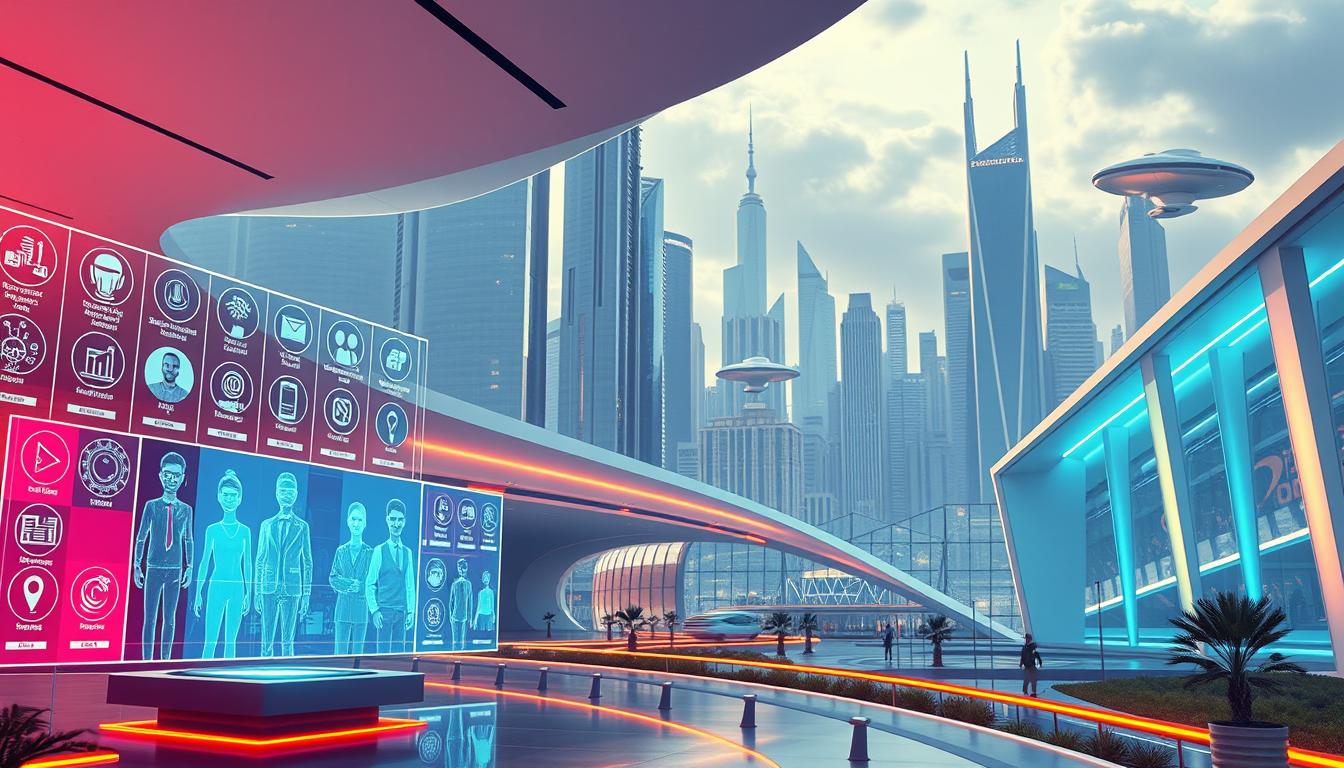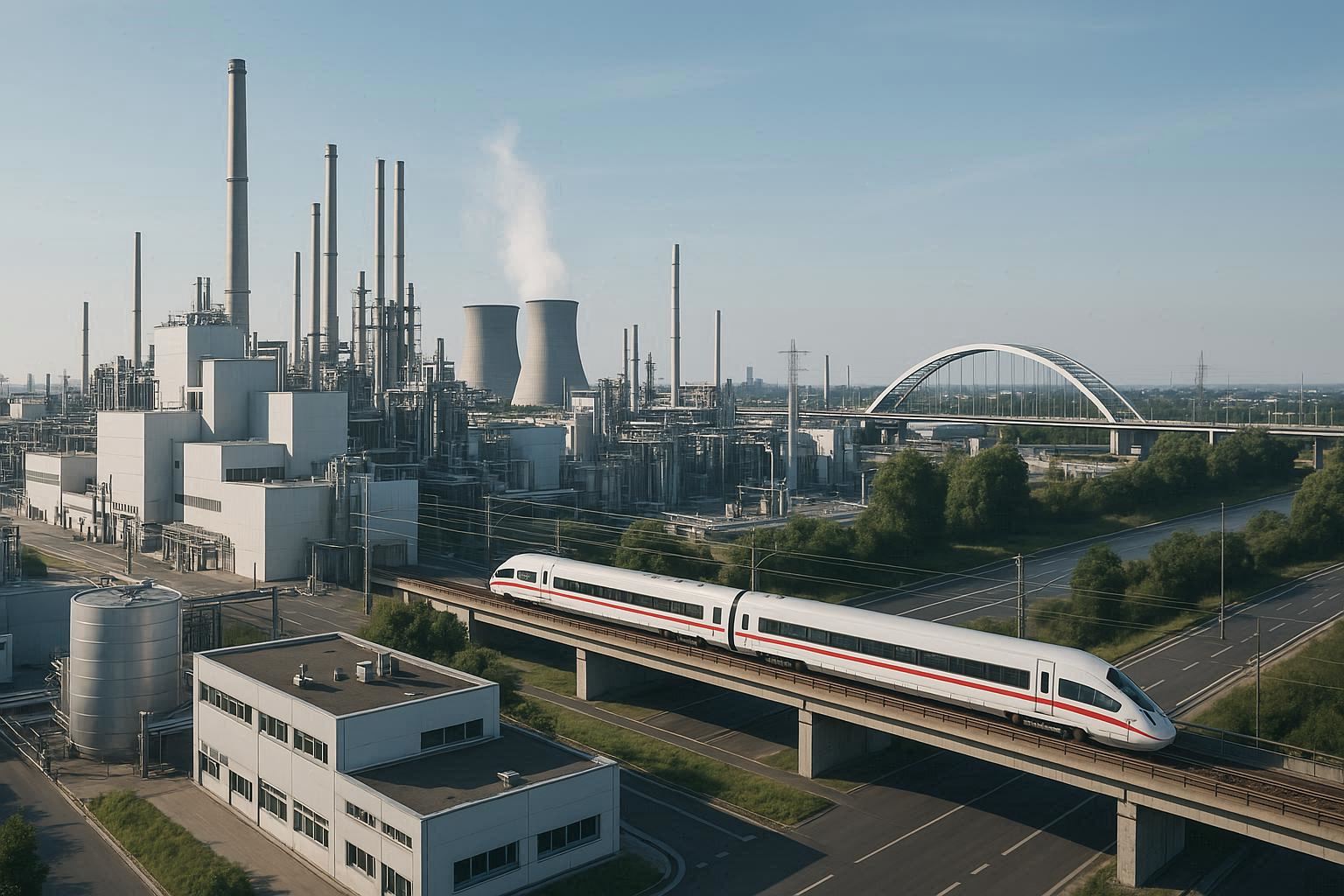The employment landscape is undergoing a significant transformation. The term “going to work” once implied a 9-to-5 job for life, a well-defined career path, and a pension. However, the current wave of digital, technological, and industrial change has altered this notion, creating new opportunities while making others obsolete.
The digital innovation over the past decade has radically altered the job landscape, with advancements in Artificial Intelligence, data storage, and processing capabilities making fundamental changes. While concerns about automation are legitimate, the positive impact of innovation on employment is often overlooked.
As the job market continues to evolve, it’s essential to examine the relationship between technological advancement and job creation. This article will explore how forward-thinking businesses are generating employment opportunities through innovation, rather than eliminating them.
Key Takeaways
- Innovation is reshaping the employment landscape, creating new job categories.
- Technological advancements are driving business growth and opportunities.
- The impact of innovation on employment is multifaceted, with both positive and negative effects.
- Forward-thinking companies are generating employment opportunities through innovation.
- The future of work will be shaped by the intersection of technology and human skills.
The Paradox of Innovation and Employment
The relationship between innovation and employment is complex, with technological advancements simultaneously creating and displacing jobs. As the pace of innovation accelerates, it is transforming the employment landscape, raising important questions about the future of work.
The Automation Concern
One of the primary concerns surrounding automation is its potential to displace human workers. Studies have shown that nearly 47% of jobs in the US are at risk of being automated in the next two decades, according to a 2013 University of Oxford study. Similarly, McKinsey’s 2017 report predicted that up to 800 million jobs could be lost to automation by 2030. This has sparked fears of a “jobless future” where artificial intelligence and machine learning replace human workers across various industries.

Why This Innovation Wave Is Different
While the concerns about automation are valid, the current wave of innovation differs from previous technological revolutions. Unlike past advancements that primarily made existing processes more efficient, today’s innovation is creating entirely new categories of work and industries. Digital technologies are enabling new forms of entrepreneurship and employment, presenting both challenges and opportunities for the labor market. As a result, the impact of innovation on employment is multifaceted, driving change in businesses and industries alike.
| Aspect | Previous Technological Revolutions | Current Innovation Wave |
|---|---|---|
| Primary Focus | Increasing efficiency in existing processes | Creating new categories of work and industries |
| Impact on Employment | Mainly displacement of traditional jobs | Both displacement and creation of new job opportunities |
| Key Technologies | Mechanization, automation | Artificial intelligence, machine learning, digital platforms |
How Innovative Companies Create New Jobs
Innovation is driving the creation of new jobs across various sectors, transforming the employment landscape. As technology continues to evolve, companies are finding new ways to innovate and expand their workforce.
Creating Entirely New Industries
The emergence of new industries is a significant factor in job creation. Sectors such as Cybersecurity, Internet of Things (IoT), and digital content creation have generated millions of jobs worldwide. These industries have not only created new job opportunities but have also opened up new markets and opportunities for growth.
| Industry | New Job Roles | Growth Potential |
|---|---|---|
| Cybersecurity | Security Analysts, Penetration Testers | High |
| IoT | IoT Developers, Solution Architects | High |
| Digital Content Creation | Content Creators, Digital Strategists | Medium |
According to Nasscom, the apex body of the Indian IT industry, tech startups and digital payments have created new opportunities for growth in the country. Emerging economies like India have become case studies for technology disruption and innovation, leading to the creation of new industries and job roles.
“The rise of digital technologies has led to the creation of new industries and job opportunities that didn’t exist a decade ago.”
Transforming Existing Business Models
Innovative companies are not only creating new industries but are also transforming existing business models. Traditional industries like retail, healthcare, and manufacturing are being reimagined through innovation, creating new specialized roles. The gig economy and platform business models have created flexible work opportunities that didn’t exist in traditional employment frameworks.

As companies pivot their business models in response to technological change, they often expand their workforce in different capacities. This transformation is creating new jobs and opportunities for people across various sectors.
Emerging Job Categories in the Innovation Economy
The rapid pace of innovation is creating fresh opportunities in the job market. As technology continues to advance, new job roles are emerging that require specialized skills and offer significant growth potential.
Technology-Driven Roles
Technological innovation has given rise to various technology-driven roles that didn’t exist a decade ago. For instance, AI ethicists, cloud architects, blockchain developers, and IoT specialists are now in high demand. These roles require specialized skills but offer competitive compensation and growth potential. Additionally, positions like data scientists, machine learning engineers, and automation specialists are becoming central to business operations across industries.

Human-Centered Positions
While technology is driving change, there is also a growing need for human-centered positions that focus on skills that remain uniquely human. Jobs that emphasize user experience, digital ethics, technology interpretation, and human-machine collaboration are gaining importance. Emerging roles like digital wellness coaches, remote work coordinators, and community managers highlight the human elements of technological systems. These new job categories often blend technical knowledge with soft skills, creating new opportunities for workers with diverse backgrounds and capabilities.
The future of work is being shaped by these emerging job categories, driven by innovation and technological development. As the market continues to evolve, it is essential for workers to adapt and acquire new skills to remain relevant in the industry.
Case Studies: Innovation Leaders Creating Employment
Companies at the forefront of innovation are not only advancing technology but also creating new employment avenues. This section highlights exceptional examples of businesses that have driven job creation through their innovative approaches.

Tech Giants and Their Employment Impact
Major tech giants like Amazon, Google, and Microsoft have grown their workforces exponentially while advancing automation technologies. For instance, Salesforce, a pioneer in cloud-based customer relationship management, has created thousands of jobs. According to a report on the future of work, such companies are not only creating direct employment but also fostering ecosystems that support various skill levels and geographic regions.
Startups Driving Job Creation
Innovative startups, despite their relatively small size and young age, have driven significant job creation. WhatsApp, for example, revolutionized electronic communication, creating new opportunities in the tech industry. Similarly, companies like Gavi and Discovery Group have made significant impacts in their respective fields through product innovations and cultural shifts towards innovation, resulting in substantial growth and new opportunities in the market.
These case studies demonstrate that innovation is a key driver of employment growth, creating new jobs and opportunities in various industries. As the world continues to evolve, it is likely that businesses will continue to play a crucial role in shaping the future of work.
Essential Skills for the Innovation-Driven Job Market
With technological advancements happening at an unprecedented rate, the need for workers with the right blend of technical and soft skills has never been more critical. As automation and artificial intelligence continue to transform the workplace, employees must develop skills that complement these technologies.
Technical Competencies
Technical skills are becoming increasingly valuable across virtually all industries. Key competencies include data literacy, coding fundamentals, digital fluency, and systems thinking. Workers can develop these skills through both formal education and self-directed learning opportunities.
- Data analysis and interpretation
- Coding and programming
- Digital tool proficiency
- Understanding complex systems
Soft Skills That Remain Irreplaceable
While technology continues to advance, soft skills remain irreplaceable by automation. Creativity, emotional intelligence, critical thinking, collaboration, and adaptability are highly valued in the innovation economy. Human-centered skills like empathy, ethical judgment, and cross-cultural communication create value in ways that technology cannot replicate.
Key soft skills include:
- Creativity and problem-solving
- Emotional intelligence and empathy
- Critical thinking and collaboration
Continuous Learning and Adaptation
The ability to learn and adapt continuously is perhaps the most essential meta-skill in an innovation-driven economy. Workers must develop learning habits and mindsets that allow them to evolve alongside technological change. Organizations can foster cultures of continuous learning that benefit both the company and individual employees.

By focusing on developing technical competencies, soft skills, and a culture of continuous learning, employees and organizations can thrive in the innovation-driven job market.
Conclusion: Embracing Innovation for Future Growth
As we look to the future, it’s clear that innovation will continue to shape the world of work. Innovative companies are not just creators of new products and services, but also drivers of new jobs and economic growth. Over the years, technology has transformed the way businesses operate, creating new industries and job categories that were unimaginable years ago.
The key to thriving in this changing landscape is adaptability. As automation and machine learning continue to evolve, workers will need to develop new skills to remain relevant. Policymakers, educational institutions, and businesses must collaborate to ensure that the benefits of innovation are broadly shared across society.
By embracing innovation and fostering a culture of continuous learning and development, we can create a future where people can thrive in a rapidly changing world. This forward-looking approach will not only drive growth but also ensure that the future of work is bright for generations to come.














